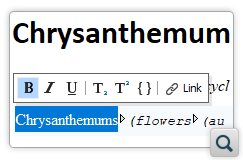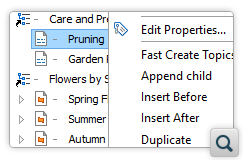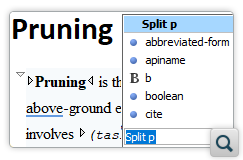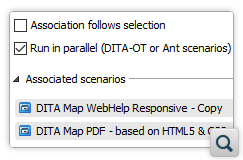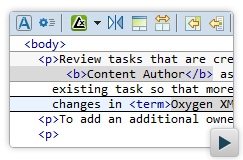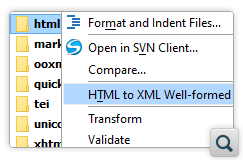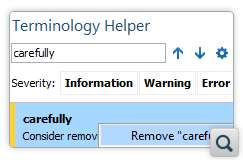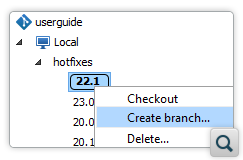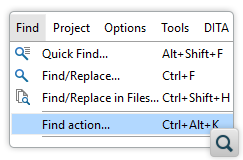2026
28.0Version 28.0 - November 26, 2025
- 27.1
Version 27.1 - March 24, 2025
2025
27.0Version 27.0 - November 27, 2024
- 26.1
Version 26.1 - March 25, 2024
2024
26.0Version 26.0 - October 11, 2023
- 25.1
Version 25.1 - March 16, 2023
2023
25.0Version 25.0 - October 13, 2022
- 24.1
Version 24.1 - March 7, 2022
2022
24.0Version 24.1.0 - March 7, 2022
Version 24.1 - March 7, 2022
Version 24.0.0 - October 18, 2021
Version 24.0 - October 18, 2021- 23.1
Version 23.1 - March 4, 2021
2021
23.0Version 23.1.1 - July 12, 2021
Version 23.1.0 - March 4, 2021
Version 23.1 - March 4, 2021
Version 23.0.0 - November 19, 2020
Version 23.0 - November 19, 2020- 22.1
Version 22.1 - May 19, 2020
- 22.0
Version 22.1.0 - May 19, 2020
Version 22.1 - May 19, 2020
Version 22.0.0 - February 12, 2020
Version 22.0 - February 12, 2020 2020
21.1Version 21.1 - May 23, 2019
- 21.0
Version 21.1.1 - October 24, 2019
Version 21.1.0 - May 23, 2019
Version 21.1 - May 23, 2019
Version 21.0.0 - February 22, 2019
Version 21.0 - February 22, 2019 2019
20.1Version 20.1 - June 15, 2018
- 20.0
Version 20.1.0 - June 15, 2018
Version 20.1 - June 15, 2018
Version 20.0.0 - March 16, 2018
Version 20.0 - March 16, 2018 2018
- 19.0
Version 19.1.0 - September 29, 2017
Version 19.1 - September 29, 2017
Version 19.0.0 - April 5, 2017
Version 19.0 - April 5, 2017 2017
- 18.0
Version 18.1.0 - October 18, 2016
Version 18.1 - October 18, 2016
Version 18.0.1 - August 9, 2016
Version 18.0.0 - April 21, 2016
Version 18.0 - April 21, 2016 2016
- 17.0
Version 17.1 - October 20, 2015
Version 17.0 - May 5, 2015 2015
- 16.0
Version 16.1 - October 7, 2014
Version 16.0 - May 20, 2014 2014
- 15.0
Version 15.2 - January 22, 2014
Version 15.1 - October 7, 2013
Version 15.0 - June 7, 2013 2013
- 14.0
Version 14.2 - February 13, 2013
Version 14.1 - October 19, 2012
Version 14.0 - June 27, 2012 2012
- 13.0
Version 13.2 - January 12, 2012
Version 13.1 - October 26, 2011
Version 13.0 - August 29, 2011 2011
12.0Version 12.2 - May 19, 2011
Version 12.1 - January 12, 2011
Version 12.0 - September 14, 20102010
- 11.0
Version 11.2 - March 16, 2010
Version 11.1 - December 17, 2009
Version 11.0 - October 9, 2009 2009
10.0Version 10.3 - June 29, 2009
Version 10.2 - April 15, 2009
Version 10.1 - February 25, 2009
Version 10.0 - October 23, 20082008
- 9.0
Version 9.3 - July 2, 2008
Version 9.2 - May 9, 2008
Version 9.1 - December 18, 2007
Version 9.0 - November 2, 2007
What's New in Oxygen XML Author 23.0
Version 23.0 of Oxygen XML Author boasts the most substantial and comprehensive set of new features, productivity enhancements, and customization possibilities in the history of the most powerful XML authoring tool available on the market.
This major release introduces lots of improvements for the DITA authoring community, productivity boosts for general visual editing, speed optimization for publishing large DITA projects, the CSS-based publishing support was further enhanced with numerous new customization possibilities, enrichments for DocBook, CSS, and HTML document types, as well as an impressive list of additions and updates to Add-ons. As usual, you can also find new API entry points, various bug fixes, component updates, and much, much more.
There are changes in:
DITA Authoring
Floating Toolbar Provides Quicker Access to Common DITA Editing Actions
When editing DITA documents, you can now quickly invoke context-specific common actions. They are available in a floating toolbar that pops up when you select content. For example, if you select content inside a paragraph element, the floating toolbar includes common styling actions such as Bold, Italic, Underline, Subscript, Superscript, as well as actions for inserting code snippets or various types of links.
Edit Submaps Directly in the DITA Maps Manager View
You can now edit submaps (i.e. add topics, change properties, or move topic references) directly in a main map opened in the DITA Maps Manager view. To do this, you need to enable the Allow referenced submaps to be edited option in the DITA -> Maps preferences page.
Edit Referenced Content When Opening a DITA Map With Expanded Topics
A DITA map opened using the Open Map in Editor with Resolved Topics toolbar button from the DITA Maps Manager is displayed with all of the content from its topic references expanded and editable in-place. This is possible if you enable the Allow referenced content to be edited from Editor > Edit Modes > Author preferences page.
Support for Creating DITA 2.0 Maps and Topics
DITA 2.0 maps and topics can now be created from new document templates. You just need to select the Enable DITA 2.0 editing support from the DITA preferences page
New DITA-Related Project Templates
Context Drop-Down in DITA Maps Manager Improved
New Author Actions Added in Contextual Menu
More author actions are available in the contextual menu when editing a DITA topic. They include the Insert Menu Cascade action in the Insert submenu and the UI Control and Filepath actions in the Style submenu.
Resource-Only Topic References Easier to Spot
References to resource-only topics that have the preocessing-role
attribute set to "resource-only" can now be more easily recognized in
the DITA Maps Manager. They are marked with a gray dot in the
bottom-right corner of the reference's icon.
Topic Validation Reports Missing IDs in References
DITA topics often contain direct or indirect references (links or content references). If the topics are located on a local drive and the referenced IDs are missing, Oxygen will report these IDs as errors.
DITA Publishing
Run Multiple Transformations on a Single DITA Map in Parallel
To help you reduce the amount of time consumed by the publishing phase, Oxygen now offers parallel execution of DITA-OT or Ant-based transformation scenarios. You can access this new option, called Run in parallel (DITA-OT and Ant scenarios), simply by selecting multiple transformation scenarios in the Configure Transformation Scenarios dialog box.
DITA-OT Memory Usage Optimized
CSS-Based DITA to PDF Publishing
Image Maps Now Fully Supported
show.image.map.area.numbers and
show.image.map.area.shapes) are used to instruct the publishing engine
to make the numbers and shapes visible in the output. For more details, see How to
Use Image Maps.DITA <svgref> Element Now Supported
<svgref> element is now supported. It can be used to
reference a fragment from an XML document that stores multiple SVG graphics.Sections Now Included in Deep Numbering
args.css.param.numbering parameter to a deep numbering type. It is also
possible to exclude sections from the numbering.Controlling Where Navigation Titles are Displayed
use.navtitles.in.all.links, now allows you to specify whether a
navtitle defined in a topic or a topic reference should be used as the
display name for all links or only in the table of contents.New Parameter for Controlling the Version of the PDF
pdf.version transformation parameter can be used to specify
the version of the produced PDF.CSS PDF Processor Bug Fixes and Improvements
Visual Editing
Extend a Framework Using a Special Script
Insert Tables in JATS Documents
Copy XML Structure to the Clipboard
New Shortcut to Select Element Content in Author Mode
Diff and Merge Support for Eclipse
Compare XML Content in Oxygen's Text-based Diff Mode
Automatically Switch to the Text Comparison Mode When no CSS is Detected
Compare DTD Documents
DocBook
Floating Toolbar Provides Quicker Access to Common DocBook Editing Actions
CSS
Support for the border-radius CSS Property
border-radius CSS
property in both the standalone and Eclipse distributions.Display a Floating Toolbar Configured with CSS
-oxy-floating-toolbar CSS property can be used to display a
floating toolbar when content is selected in Author mode. You can
customize this toolbar to provide actions commonly used in a particular
context.HTML/XHTML
Batch Convert HTML to Well-formed XML
Validate XHTML with W3C Nu HTML Checker
Add-ons
Terminology Checker
The terminology checker was also updated with more features such as support for regular expression matches, replacements with XML content, and various severity levels for the matches. A small set of Vale rules implemented in Yaml is also supported. For more details, go to https://github.com/oxygenxml/oxygen-terminology-checker-plugin.
Git Client Improvements
- The Git Client now contributes a new side-view, called the Git Branch Manager, which presents all the local and remote branches as a tree. Actions were added to the tree's contextual menu to make it very easy to check out branches, and to create or delete branches.
- You can now easily switch between local branches using a drop-down menu from the top-right corner of the Git Staging view or by using the Git Branch Manager.
- The JGit component included in the Git Client was updated to version 5.9.0.
- Some editor variables are now supported, including:
${git(working_copy_name)},${git(working_copy_path)},${git(short_branch_name)},${git(full_branch_name)}. - You can now undo changes by moving the HEAD of the current branch to the selected commit using the new Reset "[branch_name]" to this commit action.
- Various actions and options were added to enhance the Git Client. For example, you can amend the last commit, automatically push changes to the remote repository, compare two revisions of the same file, reset stored credentials, and more options to create a new branch.
For a complete list of updates added in version 2.2.0 of the Git Client, see https://github.com/oxygenxml/oxygen-git-plugin/releases/tag/2.2.0.
For a complete list of updates added in version 2.3.0 of the Git Client, see https://github.com/oxygenxml/oxygen-git-plugin/releases/tag/2.3.0.
Convert Sections in a Word Document to DITA Topics
Translator Helper
Vale Validation for Markdown and HTML Files
Scripting
Validate DITA-OT Project Files
-i argument, while the context is specified using
the -c argument.New Command Line Launcher for the DITA Translation Package Builder
New Command Line Launcher for the Batch Converter
New Command Line Launcher for Transformation Scenarios
Other
Quickly Find and Invoke Actions
Create New Projects from a Template
Improved Speed When Editing Hebrew Content in Author Mode
Profiling Attributes/Condition Text Options Pages Fine-Tuned
Content Completion Feature Now Considers Sibling Elements
title element, it will not offer a proposal to insert a
title (since it already exists).Enable Spell Checking in Processing Instructions
Reuse XPath Expressions and Operations When Defining External Actions
API
Call the BatchOperationsListener API When Multiple Referenced Files are Saved
BatchOperationsListener API will get called for each saved
document content.Create Combo Box Form Controls
OxygenUIComponentsFactory.createComboBox API can be used to
create a combo box similar to those found in various places in the application's
interface.Create Custom URL Choosers
OxygenUIComponentsFactory.createInputURLPanelProvider API can
be used to create a custom URL chooser component. For example, you can control the label,
choose whether or not to display the editor variables button, and more.Control the Names of DITA Keys
DITAAccess.setKeyNameGenerator(DITAKeyNameGenerator) API can
be used to control the naming convention for DITA keys that are automatically generated
when the Use the file name as the value of the "keys" attribute for topic
references option is selected in the DITA > New Topics
preferences page.Edit Referenced Content
AuthorReferenceResolver API. The
hasEditableReference(String, AuthorNode) and
saveModifiedReference(AuthorAccess, AuthorReferenceNode) methods can be
used to provide the possibility to edit referenced content in a framework extension and
save the changes back in the original target.Add Pseudo-Classes to a Document Before Loading
createAuthorPreloadProcessor() method was added to the
ExtensionsBundle API and it allows you to add pseudo-classes
to a document before it is loaded.Preserve Tracked Changes in a Document Fragment
createDocumentFragment(int startOffset, int endOffset, boolean
preserveTrackChange) method was added to the AuthorDocumentController API that makes it possible to
preserve tracked change information in a document fragment, even if change tracking is
disabled in the current document.Hide Various Parts of an Author Component
showRangeRuler(boolean) and
showValidationStatusBar(boolean) were added to the WSAuthorComponentEditorPage API. They can be used to hide
various parts of an Author mode component constructed via the
API.Determine if Keyboard Focus is Inside an Editing Mode
hasFocus() method was added to the WSEditorPage API. It can be used to determine if the current
editing mode has the keyboard focus.Get Details About a Fragment of Text
getNode() and inSpacePreserve() methods
were added to the TextContext API and they can be used to find out more details
about an iterated fragment of text.Obtain Styles for Pseudo-Elements
getPseudoElementStyles(AuthorParentNode) method was added
to the WSAuthorEditorPageBase API and it is used to retrieve the
styles for the :before, :after, and
:marker pseudo-elements that correspond to a node.Match URL Based on its Parameters
DocumentTypeAdvancedCustomRuleMatcher.matches(String, String, String, String, String,
Attributes, Map<String, String>, Reader) API was added and it
allows Oxygen to match a framework configuration for an XML file based on the
parameters set in the URL string.Terms of Use Changes
Saxon PE and EE Limitations
XMLUtilAccess interface) can no longer be used to create processors for
Saxon Professional Edition (PE) or Saxon Enterprise Edition (EE).Content Fusion Connector Add-on no Longer Bundled with Oxygen
Command Line Scripts Now Only Bundled with the All Platforms Distribution
Certain Validation Processors Now Deprecated
Injecting a License Key in the Author Component Now Deprecated
Apache Xalan Now Deprecated
Component Updates
Antenna House FOChecker 0.7.8
Apache Ant 1.10.9
Apache Batik 1.13
Apache FOP 2.5
Apache Commons IO Library 2.8.0
commons-io library that is bundled inside
FOP to version 2.8.0.
